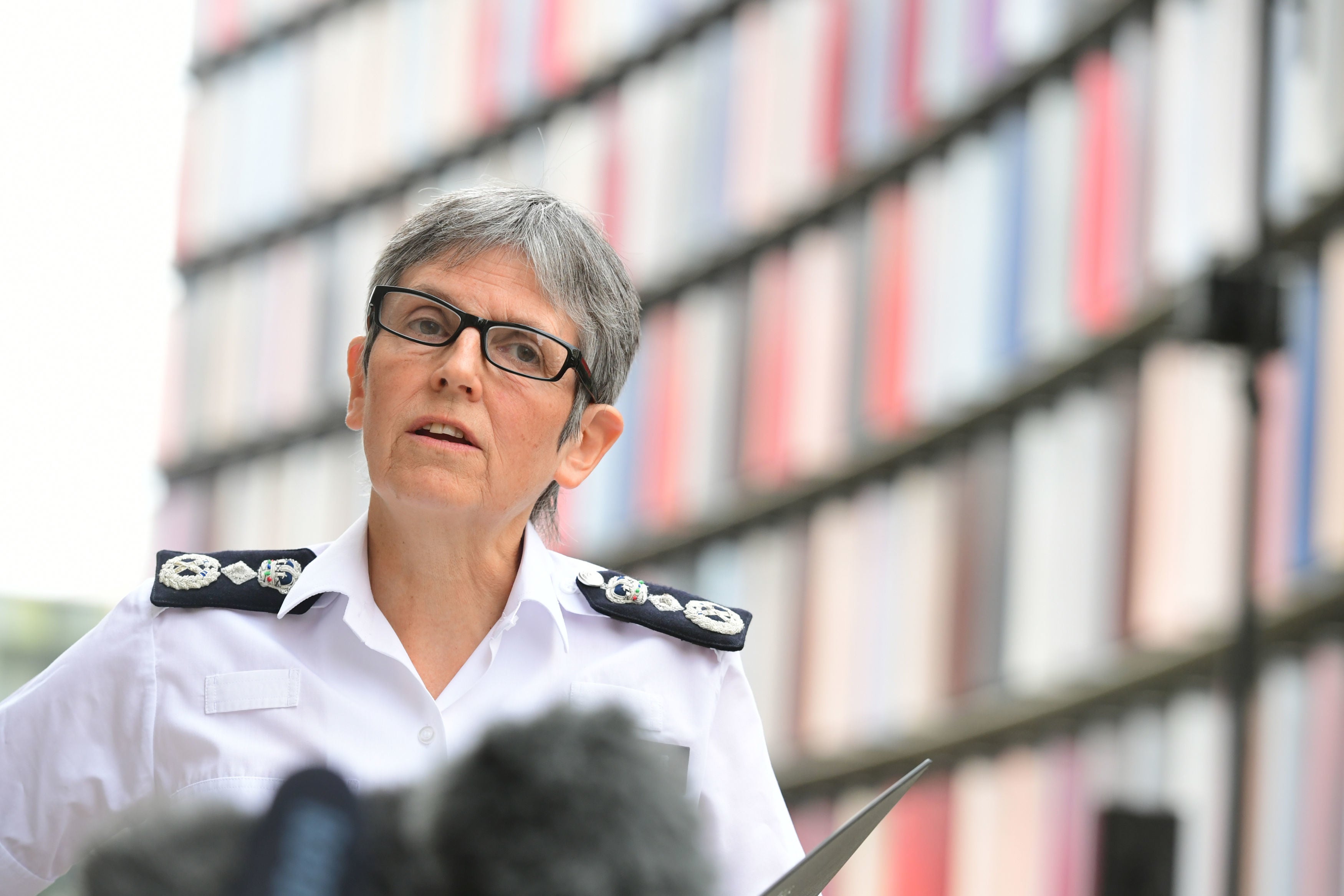Children forming ‘new generation of extremists’ in UK as terror threat shifts, Cressida Dick warns
Senior police officer warns that ‘young and vulnerable’ people being incited to commit attacks by terrorists

Britain’s most senior police officer has warned of a “new generation of extremists” as increasing numbers of children are drawn into terrorist activity.
Dame Cressida Dick, commissioner of the Metropolitan Police, told an international summit that children now make up 13 per cent of terror suspects arrested in the UK after the figure tripled in a year.
“Terrorists, certainly for the UK, have a new target audience in the young and the vulnerable,” she told the World Summit on Counter-Terrorism on Monday.
“There’s a new generation of extremists, and the reach of the internet has meant that in the UK we have seen increasing numbers of children lured towards terrorist activity.”
Dame Cressida said that extremist content online was having “a very significant effect” by mobilising children and vulnerable people, and called for tech companies and social media platforms to increase efforts to limit its spread.
She called technology the “most significant change” to terror threats over the past 20 years, beyond individual terrorist groups like Isis and international conflicts.
“The internet has eroded the physical barriers that would once have restricted terrorists,” she added.
“It has globalised extremism, proliferated the spread of poisonous ideologies internationally and made it possible for anyone with an internet connection to reach into the lives of people halfway round the world.”
The speech came days after a boy who set up an online far-right group called the British Hand at the age of 14 was sentenced for terror offences.
Among the group’s members on the encrypted Telegram messaging app was another teenager, Matthew Cronjager, who has been convicted of planning terror attacks.
Several children have previously been prosecuted over attack plots, including a 17-year-old boy who was jailed for preparing acts of neo-Nazi terrorism in November.

Paul Dunleavy had researched how to convert a blank-firing gun into a live weapon, and provided “advice and encouragement” to fellow extremists online.
In January 2020, Jack Reed, then 17, was jailed for preparing acts of terrorism after detailing plans to firebomb synagogues and other buildings in the Durham area as part of what he believed was an upcoming “race war”.
The UK’s youngest-known terror offender was sentenced in February after recruiting members for a neo-Nazi group.
The boy, who cannot be named for legal reasons, was 13 when he committed his first offence and became part of an international online network of far-right extremists.
Dame Cressida said police were also increasingly seeing people with mental health issues “being drawn to terrorism when at their most vulnerable”.
She said that terrorists have learned that sophisticated, networked plots like 9/11 and the 7/7 bombings are more likely to be detected and now aim to inspire “smaller, low-sophistication attacks by pumping out vast quantities of propaganda targeting those they identify as being susceptible to influence”.
“In the past, perhaps, recruiting children, or those with mental ill health, would have been an unacceptable risk when trying to execute a complex bomb plot,” the senior officer said.

“But when you’re simply trying to push vulnerable people over the edge towards crude, direct action such as a random knife attack, the opposite is true.”
In July, the Independent Reviewer of Terrorism Legislation said it was “necessary to speak about autism” after diagnoses were cited in a high number of court cases, including those involving children.
Jonathan Hall QC said that autism was a “relevant factor” for people being drawn into terrorist violence, alongside other cognitive difficulties and family backgrounds.
He questioned whether criminal prosecution was the right outcome in all cases, such as those over the possession of “material likely to be useful to a terrorist”.
Dame Cressida warned that terrorist propaganda was designed to resonate with people, exacerbate grievances and attract those looking for acceptance and belonging.
She said the tactic had resulted in rocketing cases labelled as “mixed, unstable or unclear” idelogy, rather than fixed jihadist or extreme right-wing mindset.
Of the 31 terror plots foiled since March 2017, 18 were classified as Islamist, 11 extreme right-wing and plots, and two left, anarchist or single-issue terrorism.
Dame Cressida said the coronavirus pandemic was worsening online radicalisation and could have “far-reaching consequences“.
“It has done so by exacerbating pre-existing inequalities, by stoking distrust in authority and inspiring a new wave of conspiracy theories, which have more easily reached the mainstream,” she added.
“Longer-term impacts like unemployment and financial uncertainty caused or exacerbated by the pandemic are exactly the problems in people’s lives that extremists can latch onto when they are looking to radicalise.
“If you add to that the increased social isolation that people have endured over the last 18 months, and the reduction in support services such as mental health provision and social care during long periods of so-called lockdown, that is a potent mix, which is of real concern.”
Join our commenting forum
Join thought-provoking conversations, follow other Independent readers and see their replies
Comments



Bookmark popover
Removed from bookmarks